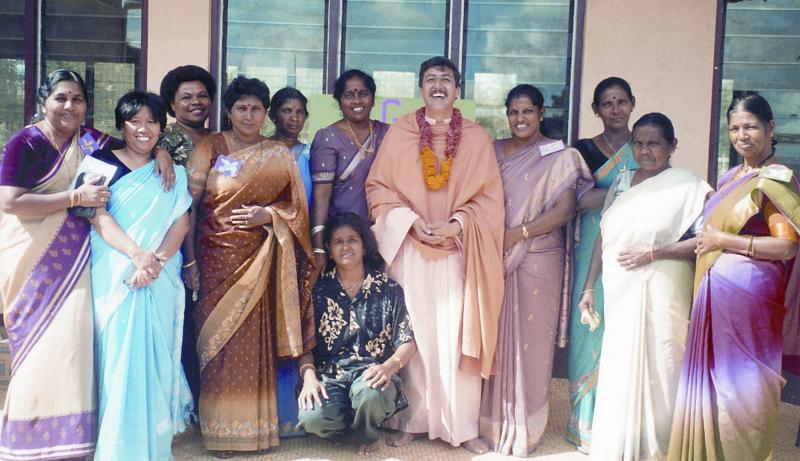‘Hidden’ Women
By Rowena ‘Weng’ Dato Cuanico
Rowena Dato Cuanico is a Columban Lay Missionary from the Philippines on her second term in Fiji.
When Beth Briones, another Columban lay missionary from the Philippines, and I arrived in Holy Family Parish, Labasa, on our first term, we spent our first six weeks at Holy Cross Catholic Community (Sector 11) in Naleba. This was to help us understand better the culture of the Indo-Fijians as well as improve our fluency in Fiji-Hindi. Being new, I felt very excited in getting to know the community. Since their names were foreign to me, remembering them and pronouncing them correctly became a challenge.
On our first Sunday in Naleba, we were introduced to the mostly Indo-Fijian community. However, I was surprised when few of the women were introduced by name. Most were simply the wife of their husbands, ‘Samuel ke aurat hain,’ ‘Samuel’s wife.’ That is how I first got to know the wives of Samuel and other men. Having to remember only the husbands’ names certainly was a lot easier, but I kept wondering – don’t the women have names of their own?
At that time, I was staying with Aunt Lila and her son, Semi. Aunt Lila has a remarkable knowledge of our community. She was helping me a lot in learning the history of Naleba, the relationships among the different families, as well as in getting to know our Muslim, Hindu and Anglican friends. But there was one thing that I felt passionate about – knowing the names of the women. So, we decided to learn their names. Surprisingly, some proved difficult even for Aunt Lila to remember, maybe because they were hardly ever heard.
Then she explained why. When an Indo-Fijian woman marries, she becomes part of her husband’s family. The woman leaves her family, literally. Some even receive their inheritance on their wedding day because on that day they ‘cease’ to be part of their own family. This explained the crying and even wailing of the bride’s family in a video I saw.
Some women, particularly in the old days, were not even allowed to see their families again, except maybe at a wedding or funeral. A woman who could visit her family any time was lucky. While times are changing, some still practice this part of their cultural tradition.
In Indo-Fijian culture, the wife is expected to follow the religious beliefs of her husband. Some Catholics married to men of other faiths no longer come to church. But there are also many women who have become Catholics after marrying Catholic husbands.
However, I learned from Aunt Lila that women do have influence in the house, although in subtle ways. Most children talk with their mothers first rather than going directly to their fathers. This position in the household thus gives them influence and authority.
With these cultural notes, Aunt Lila and I started learning the names of the women of Naleba. Slowly, I got to know Indra, Samuel’s wife, Baby, the wife of Deo Dass, as well as Roshni, Rina, Jyoti, Sheryn, Rosa, Shobna, Rosa and Margaret. Their names are beautiful. Indeed they are beautiful and hardworking women.
When Aunt Lila and I came to Mass two Sundays later, we started calling the women by name. Some looked surprised while others were amused that we knew their names. We could only smile. It was a breakthrough, a beginning. Since then, we try to call each member of the community by name.
Other good things began to happen in the community. Some women took responsibility in reviving the mandalis, prayer groups. They, with their children, became more and more active in preparing the liturgy, some leading the choir, others serving as lectors and commentators. In July 2002, Aunt Baby, a convert and wife of Deo Dass, was commissioned as a eucharistic minister, the first woman in the community to be such. Since then, Florence Raj, a teacher, has been elected as vice president of Holy Cross Catholic community.
The names of the women can finally be spoken and heard and are at least now known to the whole community. To a certain extent, they are hidden no more.

